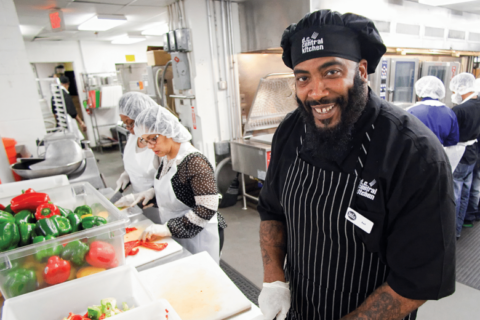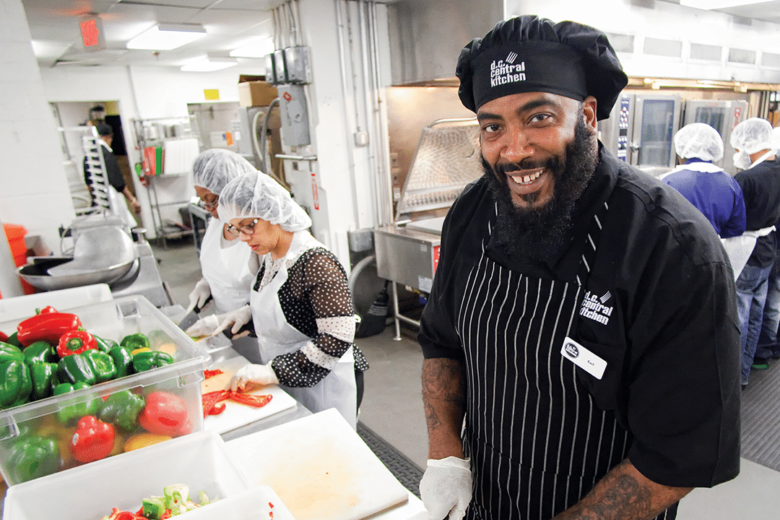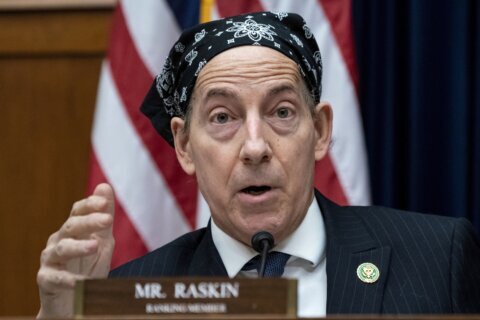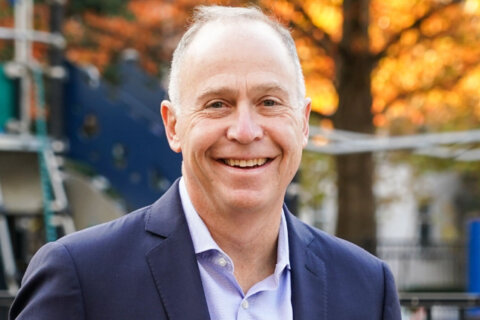
Cranes still swing overhead and cement trucks continue to beep outside DC Central Kitchen’s new headquarters in Southwest D.C. But despite the construction-commotion outside, the 36,000-square-foot Michael R. Klein Center for Jobs and Justice is open for business.
“We are wildly excited about the possibilities here,” DC Central Kitchen CEO Mike Curtin said on the DMV Download podcast. “We’ve been around for 34 years now, but this in some ways is a new start.”
The shiny headquarters in the Buzzard Point neighborhood — with its nearly 7,000-square-foot production kitchen — is glassy, bright, open and marked by modern design. It almost looks like a tech startup’s headquarters.
“For many years, we were in the basement of the federal city shelter building, which served us well, but it was hidden, it was tucked away,” Curtin said. “We were in the margins. We were in the shadows.”
For Curtin, DC Central Kitchen is not just a nonprofit. It’s also a social enterprise — a business.
“We wanted to show that social enterprise nonprofits can play a significant role in economic development, we’re not here just to ‘help’ to support people,” Curtin said. “We are here as a business.”
Through this model, DC Central Kitchen secures food contracts with schools and centers throughout the District. It also trains the unemployed how to cook and then hires them to make the food for these contracts.
“This is part of not only getting good food into all areas of our community, but it’s a social enterprise business that not only generates revenue to support the other programming of DC Central Kitchen, but creates jobs for graduates of our culinary job training program,” Curtin said.
This sort of two-birds-with-one-stone approach is still relatively rare in the nonprofit world, but the idea is spreading to places like the FoodLink’s culinary program in New York, Second Helping in Indiana, North Texas Food Bank’s culinary program in Texas, Kitchens for Good in California and Kitchen of Purpose in Virginia.
To Curtin, it’s the sort of nonprofit model that the District needs.
“D.C. has the highest rate of senior hunger in the country,” Curtin said. “The capital of the United States of America can’t take care of, feed, provide support for our senior citizens. And that is tragic.”
On the other side of the age spectrum, young people are also struggling with food insecurity.
“We also have the largest growing population of what’s referred to as ‘opportunity youth’ in the country,” the CEO said. “These are individuals that are aged 18 to 24. Most of them haven’t graduated from high school, are not involved in school, are not employed, are really disconnected from their families and are searching for what’s next.”
In a way, DC Central Kitchen is working to leverage the jobs needed by youth to feed the hunger of their elders. But does it actually work?
“Yes, it works,” Curtin said. “We actually earn over $10 million a year with our school contracts, the three cafes we run now, catering and other businesses. Again, staffed by graduates of our program, being paid living wages with living benefits, retirement benefits. So this cycle, this righteous cycle of liberation, empowerment and opportunity, actually, it does work. It does make a difference. And we want to spread that as far as we can.”








